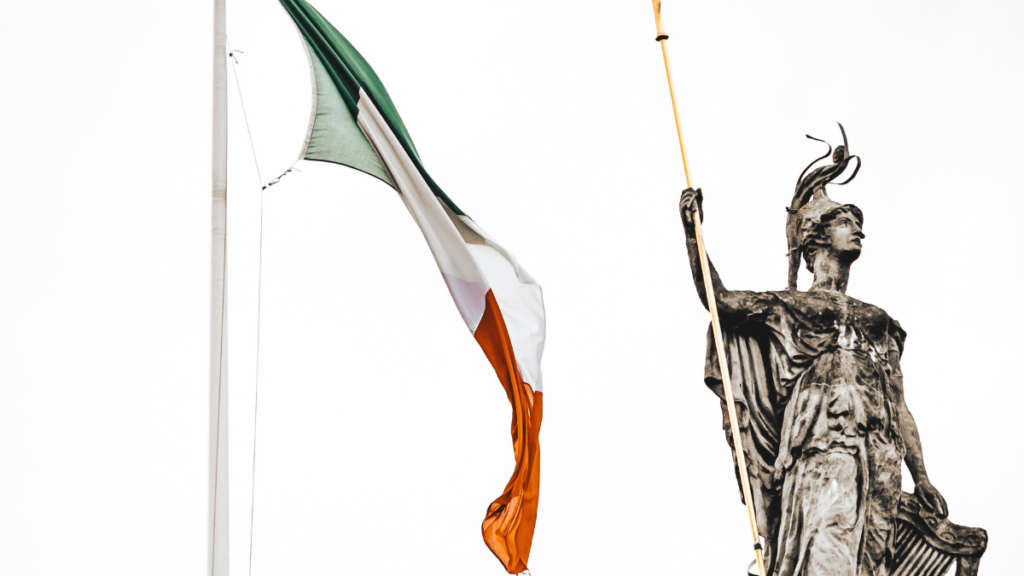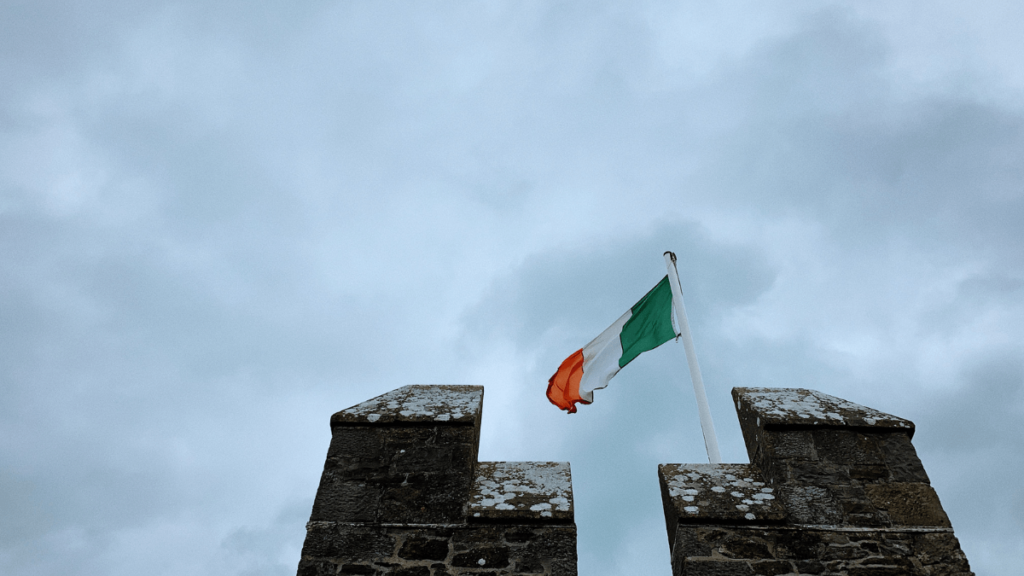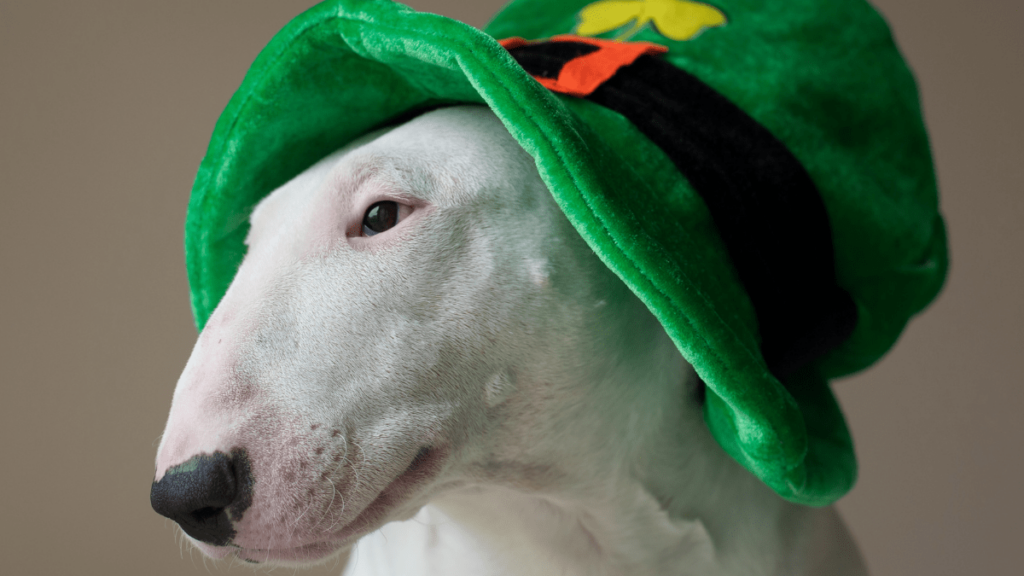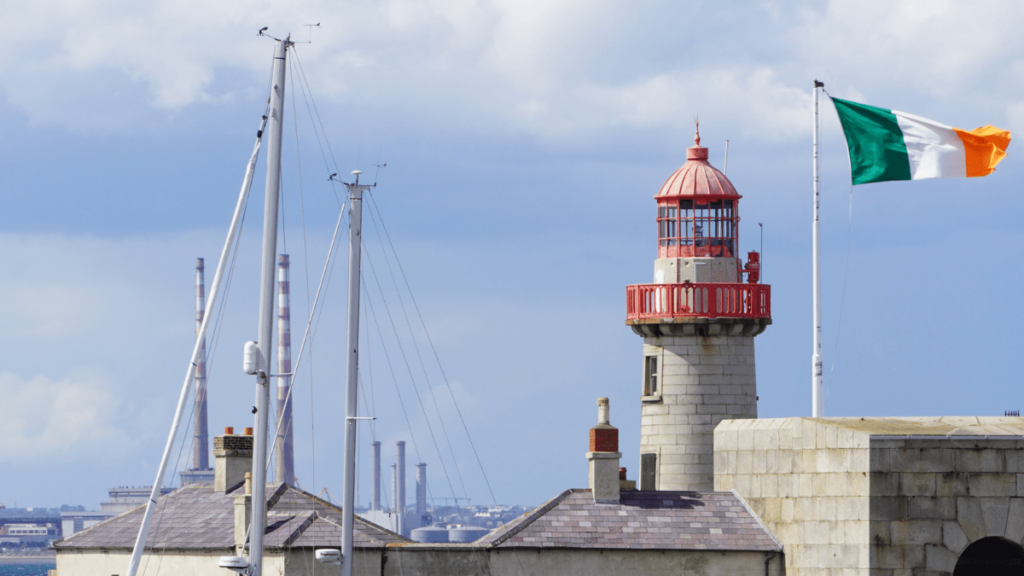So, you’re planning to apply for an Irish passport via your ancestry (parent or grandparent) and are keen to know what the process is like, what’s involved, and the unwelcome surprises you need to be prepared for.
I’ve recently completed the Irish passport application to overcome the major obstacles a UK passport posed to my business situation within the EU. Along the way, I noticed a major lack of insightful information on the process and the intricate parts involved in completing it successfully.
Getting an Irish passport as a British passport holder can be very difficult, so I created this easy-to-follow article to guide you through the entire process, tell you what you need to do, and the things that nobody else tells you about.
Now, fellow future Irishman/woman, let’s get started!
Why Did I Apply For an Irish Passport?
Politics aside, the UK made a six-letter decision in 2016 that caused a bureaucratic nightmare for British Passport holders living and working in the EU and EU passport holders doing the same in the UK.
As a British passport holder living in the EU state of Bulgaria, the effects of BREXIT didn’t hit me until 2021 for two reasons:
- I applied for a temporary residence permit before the British withdrawal from the EU. This allowed me to sidestep any issues with living in the country full-time on a UK passport.
- I wanted to open a Bulgarian-registered business to take advantage of the country’s generously low tax rates (10%)
- I planned to buy a house with land with plans to renovate it.
After said date, the latter two plans became incredibly difficult to realize. I was now a third-country citizen and no Bulgarian banks wanted to deal with me, never mind opening a business.
Regarding buying a house and land, local laws prohibited third-country nationals from purchasing land. Well, there was a loophole. You could buy it through a registered Bulgarian business, but… Yeah, you can see my problem.
I’d settled in Bulgaria and had come to love the country, from the weather and the food to the people and the immense range of nature and history on offer. I had no plans to pack my bags and leave, but I faced a major hurdle here.
Luckily, unlike many other British passport holders in a similar position, I had a possible way out through an obscure route, my grandfather. (sorry, other British passport holders!)
My Irish Grandfather

Many people in the UK have Irish ancestry and are blissfully unaware of their birthright to a Republic of Ireland passport. I was born and raised in England in a community of Irish immigrants.
My grandfather was born in the South of Ireland and came to the UK just before the outbreak of WW2 and served in a frontline role in the Royal Air Force before meeting my grandmother and settling down in England during the post-war years.
I never had the privilege to meet my grandfather, who died long before I was born. However, his birthplace was my birthright to a passport from an unofficial motherland.
I had always loved Ireland, and my upbringing always had deep roots in Irish culture and history. Convenience aside, the idea of having an Irish passport felt like an honor.
I studied the application process, which involved my applying to be put on the Foreign Births Register of Ireland. When that process was done, I was officially a citizen of Ireland and free to apply for a passport like any other Irish person can.
Sounds easy, right? Well, that’s what I thought until I actually tried to apply.
What’s Needed to Apply For an Irish Passport vis the Foreign Birth Register?
The details online gave clear instructions on what was needed to apply for foreign birth registration. Remember that the required docs are applicable to your grandparent and are based on whether they’re still alive, have ever changed their name, and have been married. Personally, I needed to get hold of the following:
- My grandfather’s birth, marriage, and death certificates (witnessed passport scan is needed if the grandparent is still alive)
- My mum’s birth certificate and a witnessed scan of her passport
- My birth certificate, a witnessed passport scan
- A printed, completed, and witnessed application form
”Your Grandfather… Doesn’t Exist?”

So, I found the right site to apply for official copies of my and my mum’s birth certificates and my grandfather’s UK marriage and death certificates. Then, I found the Irish equivalent of getting my grandfather’s birth certificate.
Within a week, all but one of the certificates had arrived. Then, I received a very unwanted email from the Irish certificates office. They’d found birth certificates for all of my grandfather’s brothers and his parents, but he seemingly didn’t exist. In other words, his birth was never registered.
Assuming it was a technical error or a typo on his certificate, I pressed the person dealing with my case to dig a little deeper and provide as many documents as possible. However, they closed my case and refunded my money. The door to my grandad’s birth certificate had been virtually shut in my face.
I was beginning to panic that it would never be found until my plight had fallen on the ears of one of my beloved aunties (the daughter of my granddad) based in the United States.
Luckily, she knew exactly what to do and wasted no time jumping into action. My auntie was determined to get to the bottom of this, and woe behold any civil servant who thought they could close the case on her!
My auntie didn’t bother dealing with the civil servants at all. Instead, she opted to go to the local church in the town where my granddad was born. The local priest not only replied to emails a lot faster, but he found my grandfather’s birth and baptismal certificate.
Now, this wasn’t a birth certificate. But it was proof of his birth and his subsequent baptism. In just over a week, my auntie had achieved what a qualified civil servant couldn’t achieve over a period of months.
Late Birth Registration (Over a Century Late, in Fact)
Armed with the certificate and feeling rather smug, I returned to the Irish births office. Surely this ticket was now the key to them finding the certificate. However, the birth certificate didn’t exist. His birth and baptism were acknowledged, but it was never officially registered.
This wasn’t an uncommon event back in those days. Now paired with a more helpful civil servant, I was guided through the process of registering my grandad’s birth (over 100 years after the event).
This wasn’t that difficult at all. The aforementioned priest dispatched the birth and baptismal certificate (a small A5 piece of paper), and I was given an application form to fill out. One of the conditions of the application was to confirm in writing that no other relatives were in a position to apply for his late birth registration.
I had to take this to a witness to be notarized. I simply went to a local solicitor, paid 20 GBP, and it was all done and dusted. I sent off the application form and received the long-awaited birth certificate in the post a few weeks later. We were moving now!
The Final Hurdle

At this stage of the process, I now had to complete a visa-style form online, print it off, get it witnessed (alongside some other docs), and send it off to Dublin with a couple of passport photos.
You can technically do this from anywhere in the world, but it would be more straightforward to fly back to the UK from Bulgaria, get the docs signed there, and send them via Royal Mail.
I budgeted three days to get the job done, and after a 20 Euro WizzAir flight, I was back in the UK. Thank goodness for my extensive collection of airport lounge access credit cards, as they helped take the edge off flying with WizzAir!
After printing off all of the required docs, I took them to the same solicitor as before to get them witnessed. With a squint of the eye and a “slight problem”, my application was refused. The solicitor had to “know me personally” to sign the documents. I now had less than 24 hours to find a witness.
Thankfully, a friend of mine is a registered nurse and was more than open to helping me overcome the final hurdle. The docs were organized, and I felt like a kid running to the post office to send them off to Ireland.
“Due to a cyber attack on the UK, no post is going abroad for at least a week”, the disgruntled employee at the desk told me. I’d waited this long; I could wait a little longer, right?
Things That Nobody Tells You About the Irish Foreign Register
My application is ongoing, and I’m eagerly awaiting that golden email that says, “Congratulations! You’re now an Irishman, slainche!”. In the meantime, I want to share some things that nobody tells you about the Irish foreign birth registration process to help you along the way.
- Your family certificates must be original, but this isn’t what it sounds like. When I first heard “original”, I was worried that the process required documents from the turn of the century that had no doubt withered away by now. Thankfully, it doesn’t. By original, they simply mean authentic copies from the births, deaths, and marriages office. Do not send photocopies, etc.
- The witness must confirm their signature with a stamp, seal, headed paper, or a business card. Few people carry an official stamp these days, and I had a lot of issues finding potential witnesses who owned one. However, one loophole not mentioned on the application form is that the witness can submit a copy of a card confirming they’re a member of a profession, such as a nurse or an accountant.
- If you’re applying through a grandparent, your parent is technically an Irish citizen. This can confuse many people when the process asks for the birth certificate and passport scan of their “Irish citizen parent”. This applies to your parent regardless of whether they’ve obtained an Irish passport/citizenship or not.
These were, in my experience, the things that nobody tells you about the whole process. If you have any tips or stories to share from your own Irish passport-hunting journey, feel free to drop them in a comment below to give the heads-up to others.
In Conclusion: The Things I Learned Along The Way

All in all, the journey toward obtaining an Irish passport via foreign birth registration was a long one. Still, nothing compared to the arduous journey people from less fortunate states have to go to to obtain foreign passports and visas for a better quality of life.
Despite being on the other side of the Atlantic, I was lucky enough to have supportive family members like my auntie, who wasn’t afraid to put her foot in the door to overcome unhelpful civil servants. Without her, I’d still be at a dead end, without a doubt.
Each person’s experience will differ depending on their family situation. But I’d advise you to always expect the unexpected, allow ample time to allow for potential delays and prepare yourself for some long waits.
Above all, make sure you read, read, and read again regarding what the foreign births registration office wants from you. They’re firm but fair, and as long as you provide them with everything they want in the way that they want them, you’ll hopefully have an Irish passport in no time.
I hope you’ve learned a thing or two from my experience, and I wish you the best of luck in your own journey to obtaining Irish citizenship through your ancestry and the passport that goes with it.
Slainche!

